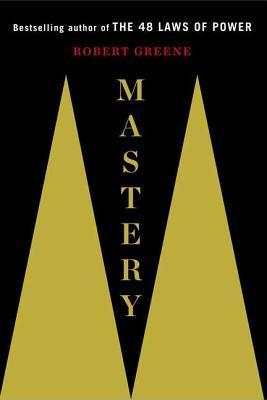More on this book
Community
Kindle Notes & Highlights
The great danger is that we give in to feelings of boredom, impatience, fear, and confusion. We stop observing and learning. The process comes to a halt.
This intense connection and desire allows them to withstand the pain of the process—the self-doubts, the tedious hours of practice and study, the inevitable setbacks, the endless barbs from the envious. They develop a resiliency and confidence that others lack.
First, you must see your attempt at attaining mastery as something extremely necessary and positive.
Second, you must convince yourself of the following: people get the mind and quality of brain that they deserve through their actions in life.
“Just as a well-filled day brings blessed sleep, so a well-employed life brings a blessed death.”
This can set you off on a very dangerous path. You end up choosing a career that does not really suit you. Your desire and interest slowly wane and your work suffers for it. You come to see pleasure and fulfillment as something that comes from outside your work. Because you are increasingly less engaged in your career, you fail to pay attention to changes going on in the field—you fall behind the times and pay a price for this. At moments when you must make important decisions, you flounder or follow what others are doing because you have no sense of inner direction or radar to guide you. You
...more
“Become who you are by learning who you are.”
In order to master a field, you must love the subject and feel a profound connection to it. Your interest must transcend the field itself and border on the religious.
You have nothing to create; you merely need to dig and refind what has been buried inside of you all along. If you reconnect with this core at any age, some element of that primitive attraction will spark back to life, indicating a path that can ultimately become your Life’s Task.
Scoff at the need for attention and approval—they will lead you astray. Feel some anger and resentment at the parental forces that want to foist upon you an alien vocation. It is a healthy part of your development to follow a path independent of your parents and to establish your own identity. Let your sense of rebellion fill you with energy and purpose.
The greatest mistake you can make in the initial months of your apprenticeship is to imagine that you have to get attention, impress people, and prove yourself.
First, it is essential that you begin with one skill that you can master, and that serves as a foundation for acquiring others. You must avoid at all cost the idea that you can manage learning several skills at a time. You need to develop your powers of concentration, and understand that trying to multitask will be the death of the process.
You are not wandering about because you are afraid of commitment, but because you are expanding your skill base and your possibilities.
Understand: you will continue to have problems in attaining social intelligence until you come to the realization that your view of people is dominated by the Naïve Perspective.
Nothing is too small to notice.
You will encounter thousands of various individuals in your life, and the ability to see them as they are will prove invaluable. Keep in mind, however, that people are in a state of continual flux. You must not let your ideas about them harden into a set impression.
Think of the workplace as a kind of theater in which you are always wearing a mask. (Reserve your most interesting and colorful thoughts for your friends, and for those whom you can trust outside work.) Be careful in what you say—it is not worth the bother of freely expressing your opinions.
Understand: people will tend to judge you based on your outward appearance. If you are not careful and simply assume that it is best to be yourself, they will begin to ascribe to you all kinds of qualities that have little to do with who you are but correspond to what they want to see.
This is The Primary Law of the Creative Dynamic that you must engrave deeply in your mind and never forget: your emotional commitment to what you are doing will be translated directly into your work.
Think of yourself as an explorer. You cannot find anything new if you are unwilling to leave the shore.
Understand: the ability to connect deeply to your environment is the most primal and in many ways the most powerful form of mastery the brain can bring us.
To rise to the level of mastery requires many hours of dedicated focus and practice. You cannot get there if your work brings you no joy and you are constantly struggling to overcome your own weaknesses.
Understand: achieving mastery in life often depends on those first steps that we take. It is not simply a question of knowing deeply our Life’s Task, but also of having a feel for our own ways of thinking and for perspectives that are unique to us.
Understand: we can never really experience what other people are experiencing. We always remain on the outside looking in, and this is the cause of so many misunderstandings and conflicts.


